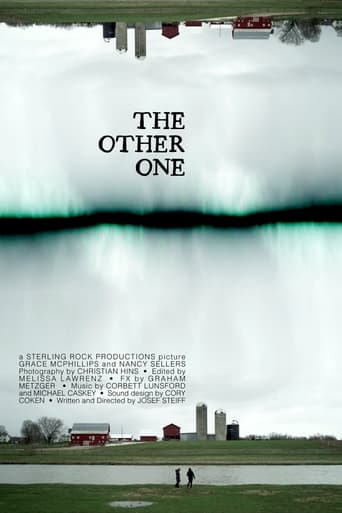Jennifer Goodland
This is a movie that is never far from being good, and because of that it is frustrating.The editing did a good job at allowing the interwoven stories to build gradually. I never felt teased. I never felt as though the characters were one-dimensional or overwrought. The use of repeated imagery and scene, with subtle changes in each repeated shot, was well done.The cinematography is fantastic. Such care is put into every shot. There is nothing lazy about the composition in scenes that most cinematographers would be tempted to phone in. The acting is well done, and both the screenwriter and the actors have an excellent grasp of what we tend not to say in moments of profound grief, and why we tend to distance ourselves even at the times our presence is needed most. This film does something rare in this time in film history, in which filmmakers are either chasing global box office or are afraid to demand undivided attention from audiences who are too busy looking at their phones to really pay attention. This is a movie that is unafraid to use nuance to tell its story.But two things keep it away from being great:1. The dementia storyline. It was so well conveyed in the first half of the movie. I understand that the mother's torture was slipping into the worst moment, tortured by her lies and the reasons why she thought the lies were necessary. The depiction of her stage of dementia, in which someone can have a string of good days and a great deal of independence punctuated by horrific episodes, was fantastic. She's just hovering on the line between home/family care and the right time to start thinking about institutionalized care.And because it was so well done in the first half, it was jarring to see the home care and symptomatic aspects of the story abandoned except when they suited the mystery subplot. The friend comes by to reintroduce the healing of the caregiver - which is important - but they also leave a dementia patient alone with no caregiver present for hours at a time. A woman who cannot get up and down the stairs by herself when she sundowns. A woman who leaves things running on the oven at high heat. A woman who cannot comprehend locking the door. A dementia patient who might wander - and who lives next to a river. Yes, when she has good days, several at a stretch as it seems - but though she may not need 24/7 monitoring, she needs someone around at all times. The film does such a good job of convincing us of her needs in the first half that it seems selfish, irresponsible, and potentially fatal to the character to throw that away and switch focus. There was no need to sacrifice the character work on the dementia storyline to also work on the drama of the caregiver. It is obvious that these filmmakers have the ability to have done both.2. This is a technical point: the score isn't... bad, exactly. But it is jarring and disrupts tension. I get that the composer was trying to match the starkness of the composition and the simple nuance of the drama the way it is presented.However, it was mixed way too loudly. The composition should have softened dramatic notes rather than emphasized them. Less is truly more. Because of the jarring DUN... dun... dundundundundun.... of the score, it did not feel stark: it felt like brutalist minimalism. Actually, it sounded a lot like the interstitial music and score NPR uses for dramatic stories, but here it is placed front and center, YOU WILL PAY ATTENTION TO HOW HARD I HIT THESE PIANO NOTES LOOK THIS IS AN IMPORTANT SCENE DUNDUNDUNDUN....I admire the intent of shooting a movie with this much subtlety and nuance. It shows an immense amount of trust in the audience. The pitfall with this tactic: It is unforgiving. Anything that hits the wrong note - literally or figuratively - will stick out. I kind of hope that the second half could be reedited and tweaked a bit, and that the sound mixing could be redone and vastly improved - because I feel like this is supposed to be a really good movie. The people who executed their jobs perfectly deserve it.
joel-280
where to start on a review of this failure? maybe, to correspond with the movie, with the trivial: I found the piano score super-irritating. Now, it wouldn't have bothered me so much of more was going on in the movie. To move to the other extreme: if the events of the story (both in the past and in the present) were laid end to end, they would be boring. The movie hides most of them and muddles up the rest, thus holding a determined viewer's attention just to find out what the hell is/was going on.What's real and what's imagined? Some bad stuff happened. At the end, who cares?
dustie6669
This film, which is very relevant to today's schools' frightening reality of shootings and too-frequent headlines which are tragically no longer shocking or infrequent, has an eerie feel to it with sub-plots that intertwine with the main theme. The dramatic change that one such event made in our heroine's life could happen to anyone, anytime. The music, written and performed by Corbett Lunsford sets the stage beautifully and is woven very smartly into the film. Grace McPhillips who wore many hats in the making of this file, including lead actress, as well as the other actors in the film did a wonderful job, very convincing and painfully real. Kudos to all involved!
